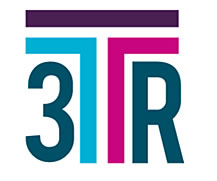


Rheumatoid arthritis (RA) is a chronic inflammatory disease that affects 0.5-1% of adults in developed countries. Uncontrolled active RA can cause joint damage, disability, decreased quality of life and cardiovascular problems along with other comorbidities
There are a number of therapeutic interventions available to treat RA and this has immensely expanded over the past 30 years. This has revolutionized the outlook for patients with RA.
Although biologic DMARDS have shown clinical and radiological benefits there is still an unmet clinical need as 40% of patients do not respond to treatment. This leads to patients being treated sequentially by different drugs, with little mechanistic rationale. The main limitation of the current “trial and error” approach is the subsequent treatment with drugs targeting different pathways, without actually knowing if these pathways are expressed in the disease tissue.
In recent years, thanks to the development of minimally invasive ultrasound-guided biopsy, synovial tissue analysis has been proposed as a tool for patient stratification with potential use in clinical practice.
The 3TR studies aim to identify biomarkers in the synovial tissue of patients with RA in order to give a more informed choice of treatment. The treatment of RA patients according to their biomarker would provide better care (avert delay starting a more effective drug) and prevent unnecessary exposure to potentially toxic drugs and additionally be cost saving.
3TR-Precis-The-RA aims to test that drug –target signatures in the synovia of patients with RA are linked to response to cognate biological DMARDs.
3TR PARTNER RA will explore the utility of synovial tissue biomarkers to stratify for treatment response in newly diagnosed RA patients starting on csDMARDs.

This project has received funding from the Innovative Medicines Initiative 2 Joint Undertaking(JU) under grant agreement No 831434.
The JU receives support from the European Union's Horizon 2020 research and innovation programme and EFPIA.
The content of this website reflects only the author's view and JU is not responsible for any use that may be made of the information it contains.